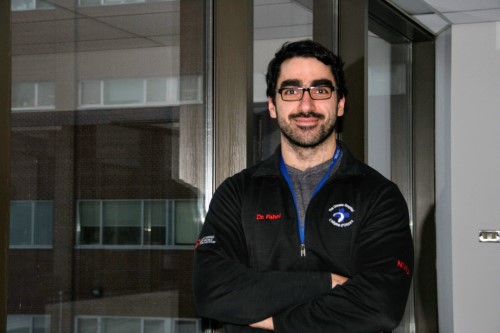 “It’s encouraging that this technique can significantly improve outcomes for a third of patients with these devastating strokes,” -Dr. Robert FahedPulling a clot out of the brain on the first try significantly improves outcomes for patients with basilar artery stroke, according to a study published in Stroke led by Dr. Robert Fahed. This rare kind stroke can cause death or severe disability by blocking the blood supply to the most critical parts of the brain.
“It’s encouraging that this technique can significantly improve outcomes for a third of patients with these devastating strokes,” -Dr. Robert FahedPulling a clot out of the brain on the first try significantly improves outcomes for patients with basilar artery stroke, according to a study published in Stroke led by Dr. Robert Fahed. This rare kind stroke can cause death or severe disability by blocking the blood supply to the most critical parts of the brain.
Using data from six stroke centres, the team identified 280 patients with basilar artery stroke who were treated with thrombectomy, a minimally invasive procedure where clots are pulled out of the brain using a catheter device. While this therapy can dramatically improve outcomes for many kinds of strokes, little was known about how it works for basilar artery strokes as these patients were rarely included in studies.
In Dr. Fahed’s study, one third of the patients had clots successfully removed after the first pass of the instrument. They had significantly better outcomes compared to those who needed multiple passes. More research is needed to confirm these findings, as well as to find tools and techniques to increase the rates of first-pass thrombectomy in these patients.
“It’s encouraging that this technique can significantly improve outcomes for a third of patients with these devastating strokes,” said Dr. Robert Fahed, associate scientist and stroke neurologist at The Ottawa Hospital, assistant professor at the University of Ottawa.
Authors: Mathilde Aubertin, David Weisenburger-Lile, Benjamin Gory, Sébastien Richard, Raphael Blanc, Célina Ducroux, Michel Piotin, Julien Labreuche, Ludovic Lucas, Cyril Dargazanli, Amel Benali, Romain Bourcier, Lili Detraz, Stéphane Vannier, Maud Guillen, François Eugene, Gregory Walker, Ronda Lun, Adrien Guenego, Arturo Consoli, Gaultier Marnat, Benjamin Maier, Bertrand Lapergue, Robert Fahed
Funding: The study received no dedicated funding. Research at The Ottawa Hospital is possible because of generous donations to The Ottawa Hospital Foundation.
The Ottawa Hospital is a leading academic health, research and learning hospital proudly affiliated with the University of Ottawa.
Media Contact
Amelia Buchanan
Senior Communication Specialist
Ottawa Hospital Research Institute
613-297-8315
ambuchanan@ohri.ca
